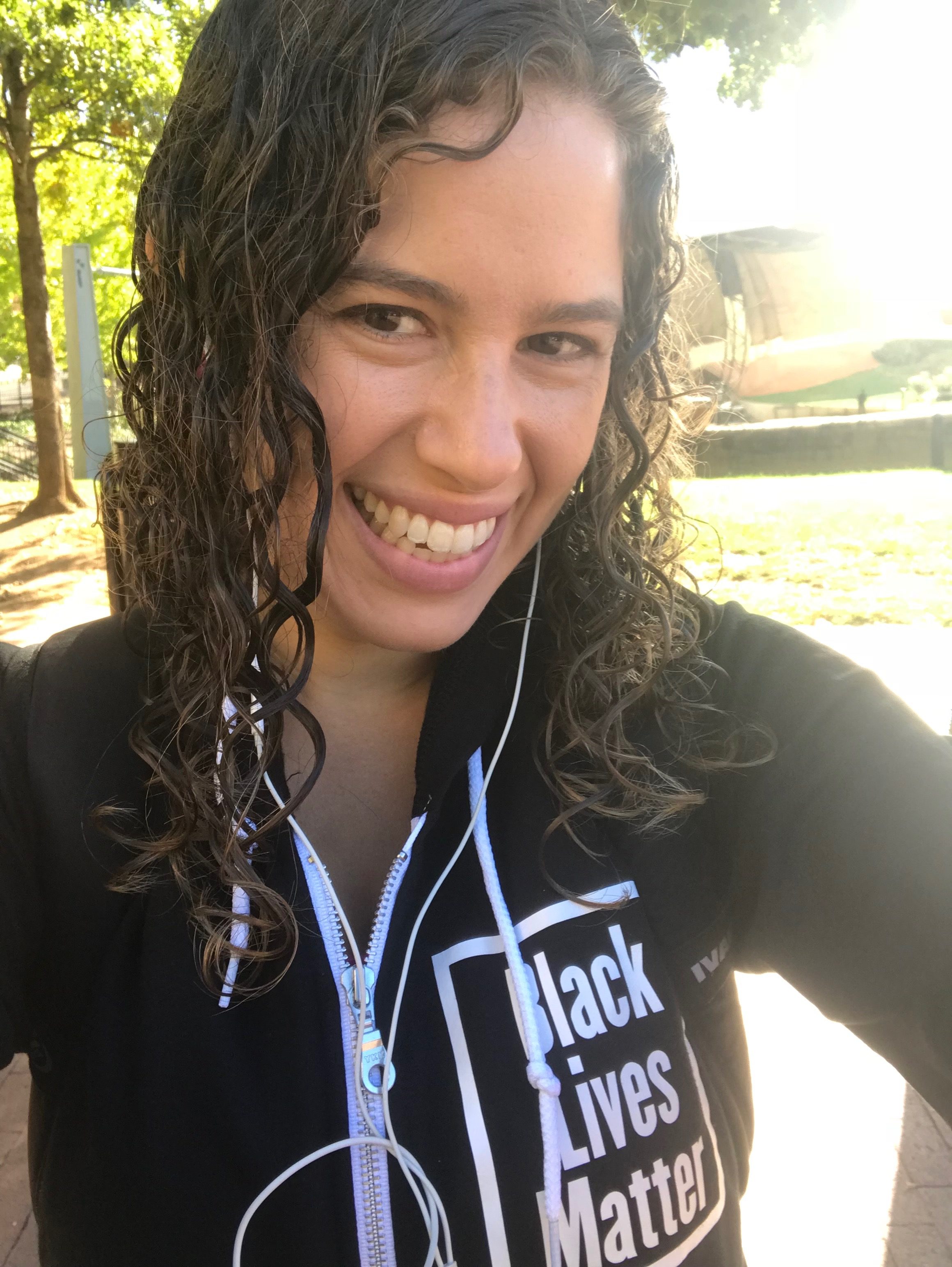I originally imagined that I would wear blue jeans and a pink tank-top for our wedding. It’s my favorite outfit! And I wanted to wear something that would allow me to be and feel like myself. Upon further consideration of occasion and dress code, I considered a flowing skirt and a tank top. Seemed reasonable.
I simply could not stomach the associations I had with the white bridal dress. The association with virginity and the implication of purity are not ideals that I seek to embrace and support. I have discussed with other women who are both sexually active and getting married how it feels insincere to get married in a white dress that implies virginity.
I’m not getting married to make myself into “an honest woman.” I have been honest all year, living with my partner, making a life together, and enjoying each other both emotionally and physically. I think both our past and our future are part of the process that we will celebrate on our wedding day.
As we started to talk more and more about our wedding, I learned a little more about the Jewish wedding ceremony. Matt mentioned his hope that he would be able to fast (not eat) the day of the wedding, as is tradition. I attended other Jewish weddings and saw the grooms don kittels, white robes. I found out that Jewish tradition considers one’s wedding day as if it were a personal Yom Kippur.
Yom Kippur is the Day of Atonement, the holiest day of the year. Both fasting and wearing white are elements of Yom Kippur that symbolize renewal: seeking forgiveness, separating oneself from past transgressions, and getting the opportunity to earn life anew. One element of Yom Kippur that I always appreciated as a child is the way in which it acknowledges error as inherent to human life. The central prayer of the service on the eve of Yom Kippur is Kol Nidre, and it declares that all vows made in the year to come shall be considered void. This prayer is a legal process in which Jews, together, declare and embrace their human weakness. Although they will spend the day ahead of them fasting and repenting for what they and others in their community have done wrong, they are not expected to become perfect in the year to come.
I felt really drawn to this imagery because it focused on process, on improvement without perfection, and on the wedding as a day on which to renew oneself and one’s life intentions.
Upon discovering this association between one’s wedding and Yom Kippur, I said to my partner: I’ll wear white if you wear white. Let’s both wear white. Let’s have ourselves our own Yom Kippur. And he said yes!
(Note: our wedding takes place on Rosh Chodesh, the first day of the Jewish month, on which fasting is prohibited, so we will not be taking on that element of repentance.)
When I put on a white dress this Sunday morning, I will make no claim to virginity, or purity, or perfection. Rather, it is a move in which I will be reckoning with my own imperfections, failures, and weaknesses. It will be a statement in which I declare my intention to enter the wedding with a sense of repentance and renewal. I have erred in the past—in this relationship, in other relationships, and in other areas of life—both intentionally and unintentionally. On Sunday, I will seek forgiveness, and I will seek a new start. When I approach my beloved under the chuppah (wedding canopy) and see him, too, wearing white, I will know that he also seeks forgiveness, and that he also loves himself and me as imperfect beings. We will both make mistakes in the future—within our marriage, with our management of our household, with our other relationships. And the commitment we make to each other in the wedding ceremony includes standing by each other through those future mistakes.
The white we wear symbolizes the freshness of our relationship, the pursuit of personal improvement, and our celebration of our own and the other’s human fragility. For the wedding ceremony itself, we will emphasize this symbolism through putting on the ceremonial white robes. Throughout the rest of the day, our white outfits will communicate that we take this day to pause for renewal and celebration amidst a long and complex process of partnership.

illusionofreality says:
Mimi –
Good luck with everything – on the "big day" and every day in the future.
Genevieve
irasass says:
i love that you were able to look at this tradition critically and reclaim it as something meaningful for both you and matt.